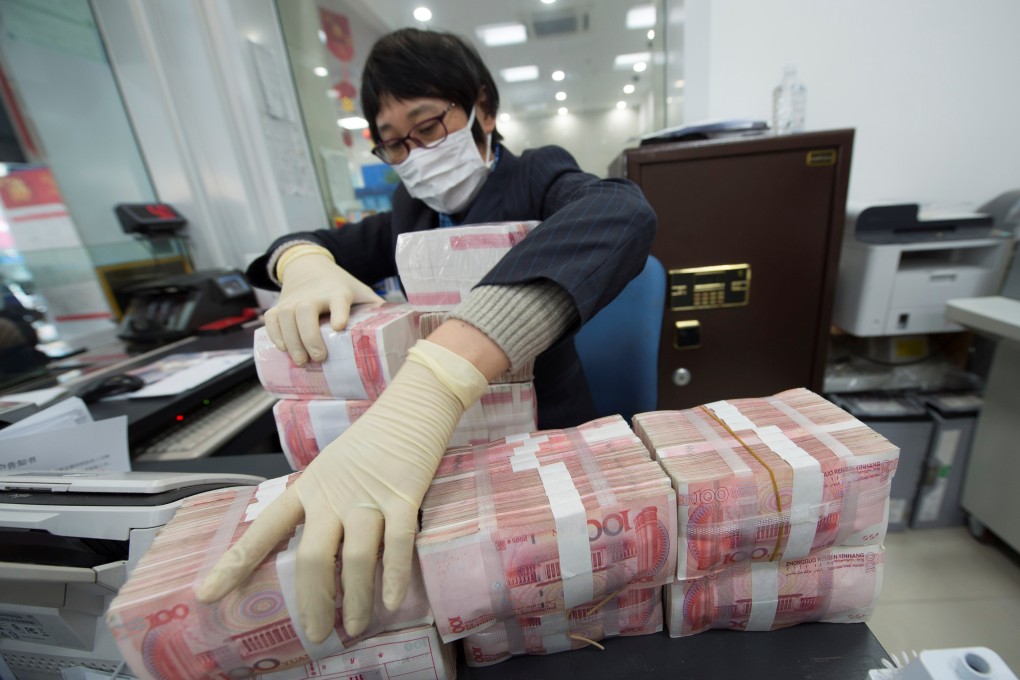Chinese banks warned to ‘stay on high alert’ for possible pain of US financial sanctions
- Central bank authorities have been largely silent on the threat of a financial war with the United States, while state-owned banks are openly discussing how they would cope
- Boosting the yuan’s international use and developing its own payment systems are options for China, but those are long-term projects

Talk of possible US financial sanctions against China has ratcheted up in recent weeks among bankers and researchers in Beijing as the looming risks are no longer negligible.
While China’s financial authorities, including the central bank, have remained largely mute over a possible financial war with the United States, China’s state-owned banks, which could be the first group of institutions to feel the heat of US hostility in the financial realm, have been intensifying their discussions on how to cope with such risks.
The research division of state-owned Industrial and Commercial Bank of China (ICBC), the world’s largest bank in terms of assets, held a symposium on July 31 and invited Chinese researchers to discuss “risks and solutions for technology and financial sanctions”, according to the research division’s social media channel on WeChat.
“Technology and finance have become two important tools for the US to pressure China. We must stay on high alert to its possible containment,” Zhou Yueqiu, chief economist for ICBC, said at the discussion. According to ICBC’s website, it has a business presence in 40 countries, with 13 branches in the United States.
Other speakers at the symposium came from institutions such as the Chinese Academy of Social Sciences, the Development Research Centre of the State Council, and Tsinghua University. Edited versions of speeches were published by ICBC’s research division last week.
Sun Jie, a researcher with the Chinese Academy of Social Sciences, said at the symposium that the US could use a number of measures to inflict pain on China, including restricting or banning travel of certain individuals, excluding Chinese business entities from global value chains, imposing trade embargoes or even seizing overseas assets.